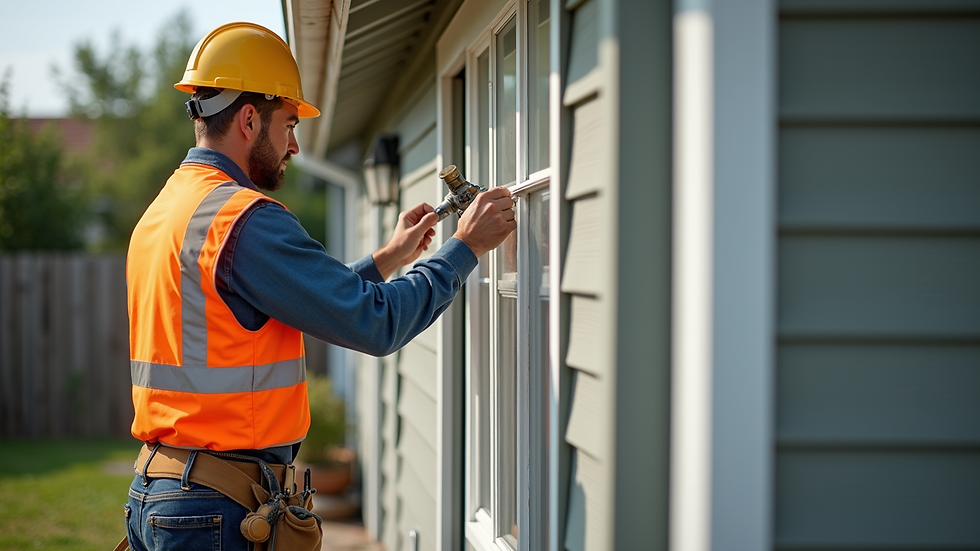Key Qualities to Look for in a Local Home Contractor
- G Matthew Dixon

- Oct 15
- 3 min read
When it comes to home improvement or renovation projects, choosing the right local contractor can make all the difference. A skilled and reliable contractor ensures your project runs smoothly, stays on budget, and meets your expectations. However, with so many options available, it can be challenging to know what qualities to prioritize. This guide will help you identify the key traits to look for in a local contractor to make an informed decision.
Experience and Expertise of a Local Contractor
One of the most important qualities to consider is the contractor’s experience and expertise. A contractor with years of hands-on experience is more likely to handle unexpected challenges and deliver high-quality results. Look for contractors who specialize in the type of work you need, whether it’s kitchen remodeling, roofing, or home additions.
How to verify experience:
Ask for a portfolio of past projects.
Request references from previous clients.
Check for any industry certifications or licenses.
Experienced contractors often have a network of trusted suppliers and subcontractors, which can help keep your project on schedule and within budget.

Communication Skills and Transparency in a Local Contractor
Clear communication is essential for a successful home improvement project. A good local contractor should be easy to reach, responsive to your questions, and transparent about costs and timelines. Miscommunication can lead to delays, unexpected expenses, and frustration.
What to look for:
Prompt responses to calls and emails.
Willingness to explain the project details and answer questions.
Clear, written contracts outlining the scope of work, payment schedule, and deadlines.
Transparency also means the contractor should be upfront about any potential issues or changes during the project. This honesty builds trust and helps avoid surprises.

Licensing, Insurance, and Local Knowledge
Hiring a licensed and insured contractor protects you from liability and ensures the work meets local building codes. Always verify that the contractor holds the necessary licenses for your area and carries insurance, including workers’ compensation and liability coverage.
Local knowledge is another critical factor. A contractor familiar with local regulations, weather conditions, and suppliers can better navigate permits and source materials efficiently.
Tips to verify credentials:
Check with your state or local licensing board.
Ask for proof of insurance.
Confirm the contractor’s familiarity with local building codes and permit processes.
This due diligence helps avoid legal issues and ensures your project complies with all regulations.
Reliability and Reputation of a Local Contractor
Reliability is a key quality that reflects a contractor’s professionalism. A reliable contractor shows up on time, sticks to the schedule, and completes the work as promised. To gauge reliability, look for reviews and testimonials from past clients.
Ways to assess reputation:
Read online reviews on platforms like Google, Yelp, or Angie's List.
Ask for references and contact previous customers.
Look for any complaints filed with the Better Business Bureau.
A contractor with a strong reputation is more likely to deliver quality work and provide excellent customer service.

Pricing and Value for Money
While cost should not be the only factor, it is important to find a contractor who offers fair pricing and good value. Beware of quotes that are significantly lower than others, as this may indicate subpar materials or rushed work.
How to evaluate pricing:
Obtain multiple detailed quotes for comparison.
Understand what is included in the price (materials, labor, permits).
Ask about payment terms and any potential additional costs.
A reputable contractor will provide a clear estimate and work with you to find solutions that fit your budget without compromising quality.
Why Choosing a Local Contractor Matters
Hiring a local contractor has distinct advantages. They are more accessible for site visits and follow-ups, understand the community’s architectural styles, and often have established relationships with local suppliers. This can lead to faster project completion and better pricing on materials.
For example, if you are in New Jersey, working with a new jersey home improvement contractor ensures you benefit from their local expertise and connections. This local focus can make your home improvement experience smoother and more satisfying.
Final Thoughts on Selecting the Right Local Contractor
Choosing the right local contractor requires careful consideration of several factors. Prioritize experience, communication, licensing, reliability, and fair pricing. Take the time to research and interview potential contractors thoroughly. Doing so will help you avoid common pitfalls and ensure your home improvement project is a success.
Remember, your home is a significant investment. Partnering with the right local contractor will protect that investment and bring your vision to life with confidence.




Comments